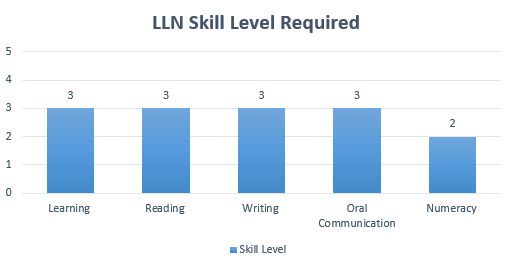White card training has become a cornerstone of workplace safety in the Australian construction industry, but its history is marked by evolution and continuous improvement. From humble beginnings through to the established system we know today, this training continued to develop over time. White card training has played a crucial role in ensuring that construction workers are equipped with the necessary knowledge and skills to safely operate on construction sites.
In this article, we’ll delve into the origins and progression of white card training, exploring how it has developed into a vital component of construction safety.
The early days
The roots of white card training can be traced back to the Occupational Health and Safety (OHS) legislation in Australia. While workplace safety concerns were always present, formalised training didn’t begin until the 20th century. The initial focus was on basic safety practices and protocols to reduce accidents in the workplace.
The red, blue, and green card era
Before the nationwide white card came into existence, Australia used a card system that varied from state to state. For example, in Western Australia, the construction safety qualification was called a blue card, in Victoria, it was called a red card, and in New South Wales, a green card.
Typically, these individual cards only allowed the holder to work within the state they were issued in. So, those that obtained a green card in NSW could only work in construction within NSW.
This system had its limitations and lacked standardisation across states and territories. Inconsistent training practices and a lack of national recognition prompted a need for reform.
The birth of the white card
The white card began its introduction throughout Australia in the late 2000s, bringing about a unified approach to education and training.
Prior to the introduction of the white card, there were various forms of safety training provided by different states and territories across the country, leading to inconsistencies and gaps in knowledge among workers.
The aim of implementing a national standard for construction safety training through the white card was to ensure that all workers were trained to the same high level, regardless of their location or employer. This new nationally recognised card replaced all the state-specific cards and allowed for workers to move freely between states and territories.
Those that obtained their general induction card before it became a nationwide white card system should check to make sure their qualification is still valid for work. The NSW Government has created a handy fact sheet to help people determine whether their interstate general construction induction training card can be used within different states and territories.
White card training online
In recent times, many registered training organisations (RTOs) have been approved to provide online white card training. This means that individuals can obtain their white card from the comfort of their own homes, at a time that suits them.
Online white card training is a convenient option for those who are unable to attend face-to-face training, such as shift workers or those living in remote areas. Express Online Training is an RTO that offers white card online courses. Our online white card courses can be completed 24/7, and stopped and resumed across different devices as needed. Express Online Training also offers local support, 7 days a week.
What is a white card in training?
Sometimes also referred to as a general induction card, the white card is a certification that must be held by any person carrying out construction work within Australia. This includes a number of different roles, such as:
- Workers that regularly visit active construction zones
- Site managers
- Surveyors
- Labourers
- Supervisors
- Tradespeople
- Any other individual that routinely attends active construction zones
White card training covers critical health and safety topics relating to the construction industry, including:
- Hazard identification and risk assessment
- Occupational health and safety laws and regulations
- Emergency procedures
- Safe work practices, including correct use of personal protective equipment (PPE)
- Identification of safety signs and symbols
- Requirements for reporting and communicating within the construction industry
- Sustainability management on construction sites
The concept of white card training has come a long way from its early beginnings in occupational health and safety. From the inconsistent coloured card system across the states to the unified national white card, it has evolved to become a crucial element in the construction industry’s safety framework.



